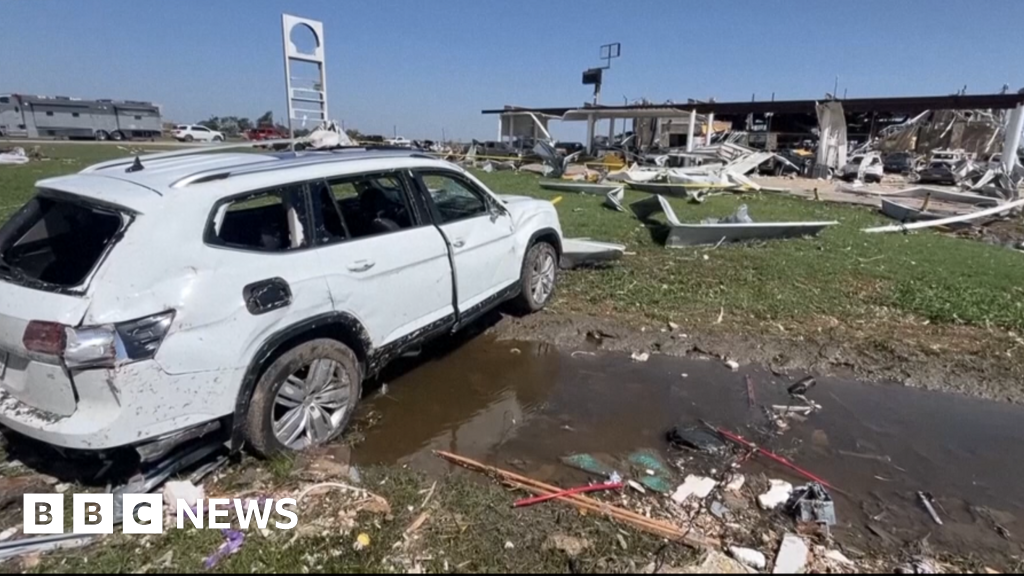Tornadoes and devastating thunderstorms have left nearly 300,000 residents across seven states without power as of Monday night.
Over the weekend, huge storms killed at least 23 people and left a path of destruction across the central US.
Forecasters said the greatest weather risk has shifted east, covering a broad sweep of the country from Alabama to New York.
More thunderstorms, damaging wind gusts, hail and flash flooding are expected.



If I recall, it’s between 3x and 10x as expensive to build buried lines versus overhead, tending more towards the high end of that number in existing built-out neighborhoods where there’s a lot of existing stuff in the right-of-way that needs to be removed or worked around somehow.
The real problem that folks have been bringing up is for-profit electric utilities ignoring line maintenance and instead just pocketing as profit the funds that should have paid for that work. Lots of folks in my area have noted that the utility used to regularly trim trees near the lines, but that work basically stopped after it merged into a larger regional power company. Even when people would call to report branches basically draped over the lines, the utility would ignore the issue.
For what it’s worth, I live in a relatively small pocket where power is provided by a county public utility, and the outages in our area were much less severe and power was restored to all but one or two people within a day. The utility board is far from perfect, but in this case they performed significantly better than their for-profit peer around us.
I’m in Duke energy territory and the past few years they have been really getting their act together. It doesn’t make it better than a coop model but they have been extremely proactive about clearing trees and anything else that would interfere with the lines as well as adding new capacity to the existing lines, adding/upgrading/replacing poles that are holding more weight than they should, etc.
I meant to mention in another comment that I was utility locate tech for a couple of years so in addition to my standard geek creds, I have a deeper understanding of this and see it from a different angle than the average citizen.
Personally we are planning on getting some solar panels installed hopefully this year or early next year, that along with a large enough battery and a v2h adapter (when it becomes an option for my car) will make us virtually immune to outages.